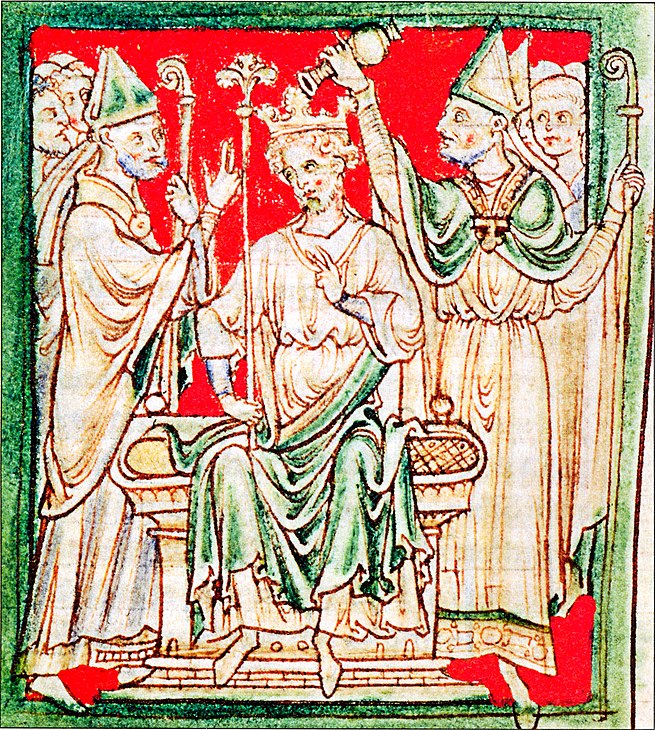
Main Difference
The main difference between Monarchy and Anarchy is that the Monarchy is a system of government where the head of state position is inherited within family and Anarchy is a society without a publicly enforced government or violently enforced political authority.
-
Monarchy
A monarchy is a form of government in which a group, generally a family representing a dynasty (aristocracy), embodies the country’s national identity and its head, the monarch, exercises the role of sovereignty. The actual power of the monarch may vary from purely symbolic (crowned republic), to partial and restricted (constitutional monarchy), to completely autocratic (absolute monarchy). Traditionally the monarch’s post is inherited and lasts until death or abdication. In contrast, elective monarchies require the monarch to be elected. Both types have further variations as there are widely divergent structures and traditions defining monarchy. For example, in some elected monarchies only pedigrees are taken into account for eligibility of the next ruler, whereas many hereditary monarchies impose requirements regarding the religion, age, gender, mental capacity, etc. Occasionally this might create a situation of rival claimants whose legitimacy is subject to effective election. There have been cases where the term of a monarch’s reign is either fixed in years or continues until certain goals are achieved: an invasion being repulsed, for instance.
Monarchic rule was the most common form of government until the 19th century. It is now usually a constitutional monarchy, in which the monarch retains a unique legal and ceremonial role, but exercises limited or no official political power: under the written or unwritten constitution, others have governing authority. Currently, 45 sovereign nations in the world have monarchs acting as heads of state, 16 of which are Commonwealth realms that recognise Queen Elizabeth II as their head of state. Most modern European monarchies are constitutional and hereditary with a largely ceremonial role, with the exception of the Vatican which is an elective theocracy and the Principalities of Liechtenstein and Monaco where the monarchs exercise unrestricted authority. The monarchies of Cambodia and Malaysia are constitutional with a largely ceremonial role, despite possessing significantly more social and legal clout than their European counterparts. The monarchs of Brunei, Morocco, Oman, Qatar, Saudi Arabia and Swaziland have more political influence than any other single source of authority in their nations, either by tradition or a constitutional mandate.
-
Anarchy
Anarchy refers to the state of a society being without authorities or a governing body, and the general confusion and chaos resulting from that condition. It may also refer to a society or group of people that totally rejects hierarchy.The word originally meant leaderlessness, but Pierre-Joseph Proudhon adopted the term in his 1840 treatise What Is Property? to refer to anarchism, a new political philosophy which advocates stateless societies based on voluntary associations.
In practical terms, anarchy can refer to the curtailment or abolition of traditional forms of government and institutions. It can also designate a nation or any inhabited place that has no system of government or central rule. Anarchy is primarily advocated by individual anarchists who propose replacing government with voluntary institutions.
-
Monarchy (noun)
A government in which sovereignty is embodied within a single, today usually hereditary head of state (whether as a figurehead or as a powerful ruler).
-
Monarchy (noun)
The territory ruled over by a monarch; a kingdom.
-
Monarchy (noun)
A form of government where sovereignty is embodied by a single ruler in a state and his high aristocracy representing their separate divided lands within the state and their low aristocracy representing their separate divided fiefs.
-
Anarchy (noun)
The state of a society being without authorities or an authoritative governing body.
-
Anarchy (noun)
Anarchism; the political organized by the voluntary cooperation of individuals, rather than by a government, which is regarded as being coercive by nature.
-
Anarchy (noun)
A chaotic and confusing absence of any form of political authority or government.
-
Anarchy (noun)
Confusion in general; disorder.
